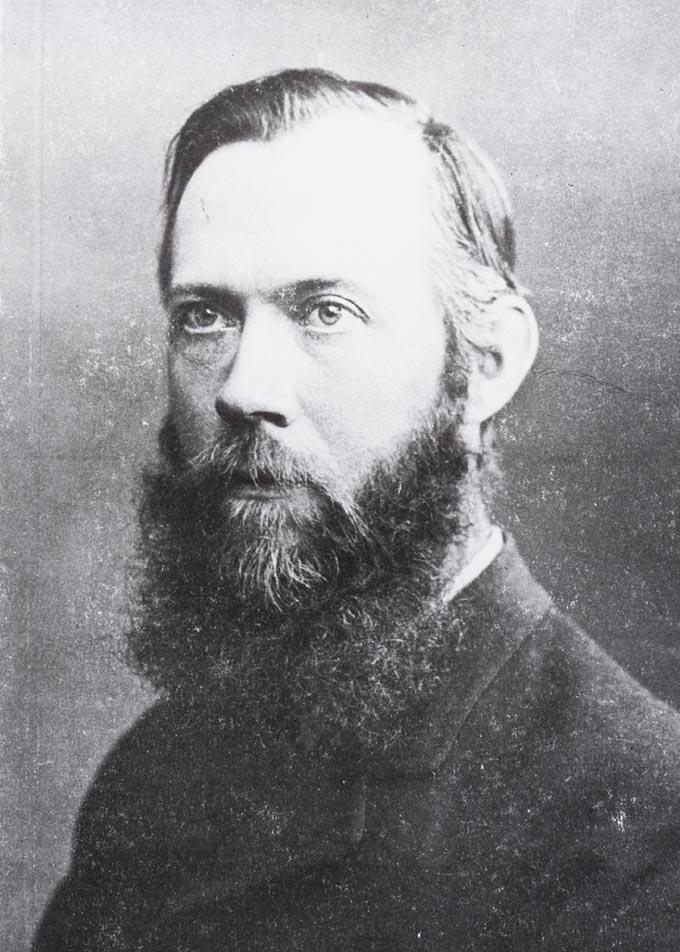"Lenin as Philosopher" is a classic criticism of Lenin, written by the Dutch Marxist and council communist Anton Pannekoek. The author left the Communist International in 1921 together with Herman Gorter and the German KAPD, but their alternative Communist movement never really got off the ground. Council communism was semi-anarchist and hence less authoritarian than Marxism-Leninism, but also heavily sectarian and ineffectual. Today, Pannekoek's writings are probably of interest only to very intellectual anarchists who would never throw Molotovs, preferring to hibernate at some obscure institution of higher learning... (And no, I'm not referring to myself.)
Pannekoek's little book was published under a pseudonym in 1938. Interestingly, it was first offered to a journal of the Frankfurt School, but was rejected. Occasionally, "Lenin as Philosopher" has been misattributed to another anti-Leninist Marxist, Paul Mattick. Some editions of the work contain an afterword by Karl Korsch.
"Lenin as Philosopher" is a critical examination of Lenin's only major foray into philosophy, "Materialism and Empirio-criticism". Lenin's work is a blistering attack on the supposedly idealist, solipsist and reactionary philosophies of Ernst Mach and Richard Avenarius. Pannekoek was not impressed, and comes close to actually defending Mach and Avenarius, whom he regards as materialists. Pannekoek accuses Lenin of "middle class materialism", sharply rebuking him for drawing the main battle line in philosophy between materialism in general and idealism, when the real fault line is between Historical Materialism and middle class materialism. Ironically, Pannekoek uses standard Marxist analysis to attack Lenin and the Russian revolution, charging that it was "state capitalist" and represented the interests of a new bureaucracy, rather than those of the workers and peasants.
But what is Pannekoek's alternative? While the author claims to be a materialist, I rather get the impression that he was closer to panpsychism, neutral monism or certain kinds of phenomenology. Pannekoek explicitly attacks Lenin for regarding dead matter as the ultimate ground of existence, instead suggesting that existence is a holistic system in which mind and matter are somehow intertwined, and where the same phenomenon can be both physical and psychical dependent on perspective. He seems to suggest that creativity, political ideas and the social actions which flow from them are decisive in shaping society. True, society and nature are in some ultimate sense material, but since the whole of existence is a network of "relations", including relations between mind and matter, Pannekoek has moved away from a strictly reductive materialism even in his view of the universe itself. Also, Pannekoek seems to suggest that socialist propaganda, including philosophical and scientific expositions, play an important part in the class struggle. This suggests that *ideas* are central. Curiously, Pannekoek doesn't believe that the fight against religion is important in the Western nations, since the development of the socialist and labour movements will somehow render it obsolete almost automatically. This stands in sharp contrast to the battle of ideas he seems to be calling for overall.
In contrast to strict panpsychists, Pannekoek doesn't believe that all material objects are in some sense conscious. He holds that such a viewpoint, which he identifies with Haeckel, is really dualist. Instead, the author suggests that only some forms of matter are conscious. However, since mind and matter both seem to be parts of a larger holistic system, this isn't a consistently materialist position either. It's easy to understand why Pannekoek could read Mach and Avenarius with some benefit, while Lenin (with his "naïve realism" towards space, time and natural laws) regarded their talk about reality being a sensation-complex to be a dangerous concession to idealism.
In one chapter, Pannekoek expresses strong support for Joseph Dietzgen, a German or German-American socialist who developed his own version of dialectical materialism independently of Marx and Engels. I never read Dietzgen, who is a very obscure thinker, but judging by Pannekoek's description, he wasn't a strict materialist either. Dietzgen seems to have been a quasi-idealist, crypto-panpsychist early phenomenologist! Hats off, Joe.
Lenin never got the opportunity to respond to "Lenin as a Philosopher" (he was already a mummy on Red Square by the time his Dutch adversary penned his pamphlet), but I don't think he would have been impressed. The Soviet Russian leader had attacked the politics of the so-called ultralefts, including Pannekoek's supporters, in his book "Left-Wing Communism: An Infantile Disorder". But then, Lenin wasn't the philosophical type. At bottom, "Materialism and Empiro-Criticism" was a factionalist document, something Pannekoek also acknowledges. Apparently, Lunacharsky and Bogdanov - two of Lenin's factional opponents within the Bolshevik ranks - had developed ideas similar to those of Mach and Avenarius. Or so Lenin believed. That was the real reason why the Bolshevik leader wrote an extensive, talkative and extremely tedious book on the differences between Marxism and Empirio-criticism.
"Lenin as Philosopher" is also available free online on several Marxist and anarchist sites.
Next week: Ashtar Command takes on Amadeo Bordiga, Otto Rühle and the Tooth Fairy.

No comments:
Post a Comment